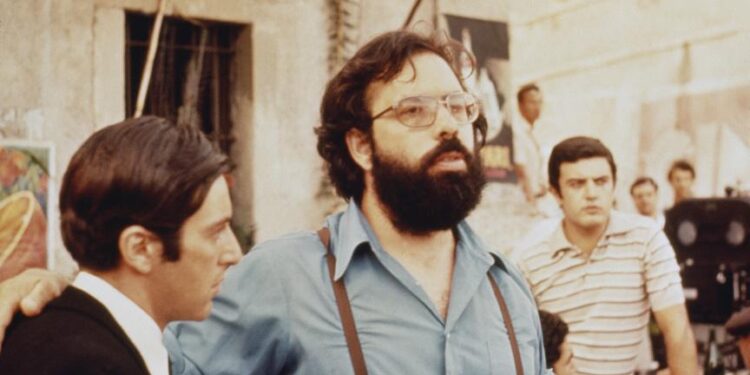Renowned filmmaker Francis Ford Coppola, best known for directing the iconic “Godfather” trilogy, has been hospitalized in Italy for a medical procedure addressing atrial fibrillation. The news has raised concerns among fans and the film industry alike, prompting questions about the severity of his condition and his current health status. This article delves into the details of Coppola’s hospitalization, the nature of atrial fibrillation, and what it means for the celebrated director’s prognosis.
Godfather Director Admitted to Italian Hospital for Atrial Fibrillation Treatment
Renowned film director Francis Ford Coppola was recently admitted to a leading Italian hospital to undergo treatment for atrial fibrillation, a common heart rhythm disorder. Sources close to the director have emphasized that the procedure planned aims to restore normal heart rhythm and alleviate symptoms such as palpitations and fatigue. Medical experts often consider catheter ablation or electrical cardioversion as viable options for this condition, which can significantly improve quality of life when managed promptly. Despite his iconic status, the director’s medical team has reassured fans that the condition, though serious, is treatable with modern interventions.
To better understand the treatment landscape for atrial fibrillation, here’s a concise overview of common options and their intent:
| Treatment | Purpose | Recovery Time |
|---|---|---|
| Catheter Ablation | Eliminates faulty electrical pathways causing arrhythmia | 1-2 weeks |
| Electrical Cardioversion | Restores normal heart rhythm via controlled electric shocks | Short (a few days) |
| Medication | Controls heart rate and prevents clot formation | Ongoing |
- Early diagnosis helps mitigate risks associated with atrial fibrillation.Regular follow-up ensures treatment effectiveness and adjustment if necessary.
- Lifestyle modifications such as managing weight, reducing alcohol intake, and controlling blood pressure can complement medical treatment.
- Patient education about symptoms and when to seek urgent care is crucial to prevent complications like stroke.
Understanding Atrial Fibrillation and Its Impact on Heart Health
Atrial fibrillation (AFib) is a common cardiac arrhythmia characterized by an irregular and often rapid heart rate. This condition disrupts the coordinated contraction of the atria, leading to inefficient blood flow and increasing the risk of clot formation. Patients experiencing AFib may note symptoms such as palpitations, dizziness, fatigue, and shortness of breath. However, some remain asymptomatic, complicating timely diagnosis. The irregular heart rhythm associated with AFib can significantly strain the heart over time, potentially resulting in complications including heart failure and stroke.
Managing atrial fibrillation involves a combination of lifestyle modifications, medication, and in some cases, medical procedures like catheter ablation-the approach reportedly undertaken by the Godfather director during his hospitalization in Italy. Key goals in treatment focus on:
- Restoring normal rhythm or controlling heart rate,
- Preventing blood clots through anticoagulants,
- Reducing symptoms to improve quality of life.
Understanding the severity of AFib depends on various factors including age, underlying heart conditions, and stroke risk assessment scores such as CHAâ‚‚DSâ‚‚-VASc, which helps guide treatment decisions:
| CHAâ‚‚DSâ‚‚-VASc Factor | Points |
|---|---|
| Congestive Heart Failure | 1 |
| Hypertension | 1 |
| Age ≥75 years | 2 |
| Diabetes Mellitus | 1 |
| Stroke or TIA (Transient Ischemic Attack) | 2 |
| Vascular Disease | 1 |
| Age 65-74 years | 1 |
| Sex Category (Female) | 1 |
Medical Experts Discuss Recovery Expectations and Preventative Measures for Atrial Fibrillation Patients
Medical professionals emphasise that the recovery process for patients undergoing treatment for atrial fibrillation (AFib) can vary significantly depending on the individual’s overall health, the severity of the arrhythmia, and the type of procedure performed. Typically, patients experience symptomatic relief within days to weeks following catheter ablation or drug therapy, but follow-up care remains crucial to monitor for any recurrence. Experts recommend a combination of medication adherence, lifestyle adjustments, and regular cardiac evaluations to ensure long-term efficacy and reduce potential complications.
Prevention strategies focus heavily on managing underlying risk factors that contribute to AFib. These include lifestyle habits like maintaining a healthy diet, regular physical activity, avoiding excessive alcohol and caffeine intake, and controlling blood pressure. The following table summarises recommended post-procedural care and preventative measures widely endorsed by cardiologists:
| Post-Procedure Care | Preventative Measures |
|---|---|
| Medication compliance (anticoagulants and antiarrhythmics) | Balanced diet rich in fruits, vegetables, and whole grains |
| Regular follow-up ECG and Holter monitoring | Moderate exercise (30 minutes, 5 times a week) |
| Hydration and avoiding stimulants | Stress management techniques such as meditation |
| Immediate reporting of any new or worsening symptoms | Regular blood pressure and weight monitoring |
The Way Forward
As the acclaimed director undergoes treatment for atrial fibrillation in Italy, medical professionals remain cautiously optimistic about his recovery. While atrial fibrillation is a serious heart condition that requires careful management, timely intervention often leads to positive outcomes. Fans and colleagues alike continue to send their support, hoping for a swift and full return to health. TheHealthSite will provide updates as more information becomes available regarding the director’s condition.
















